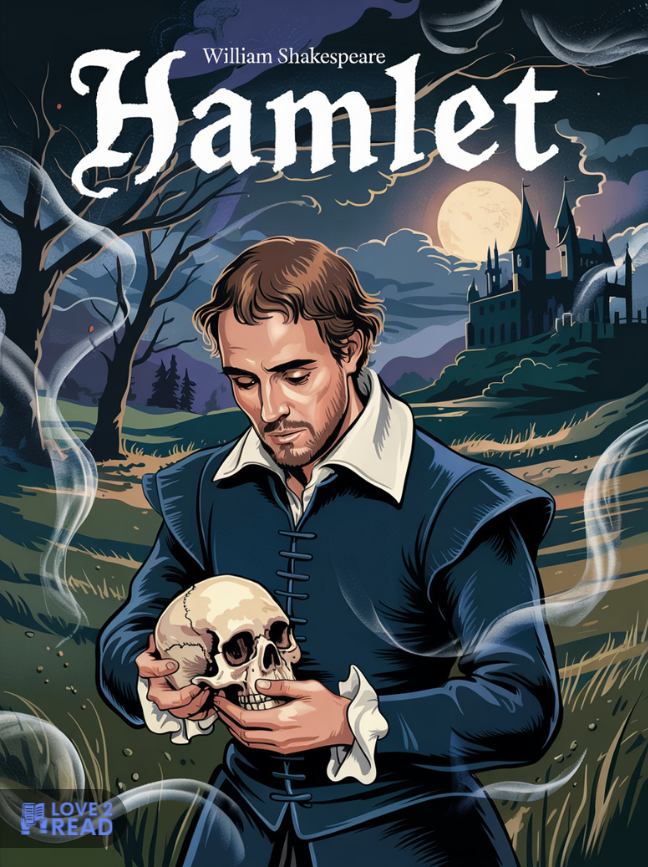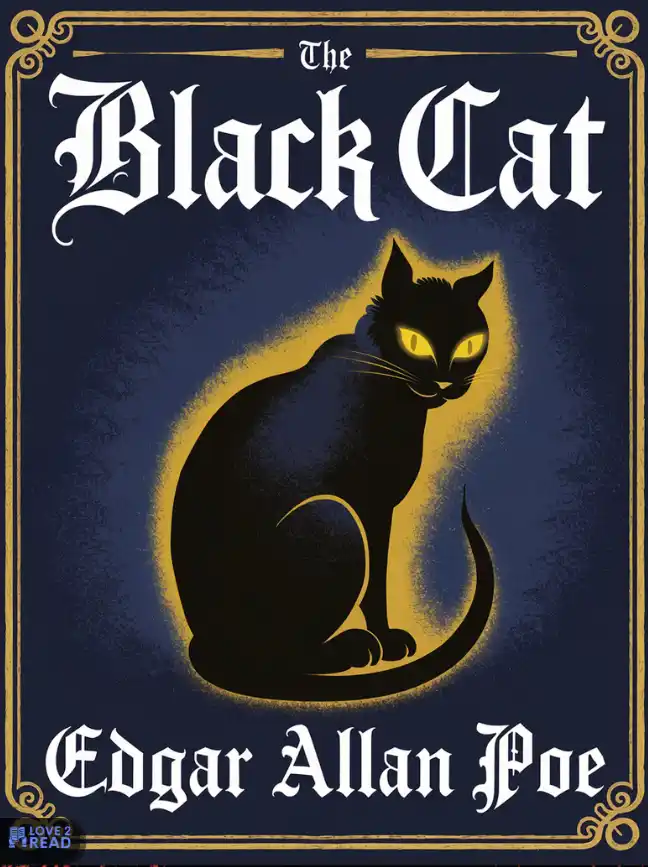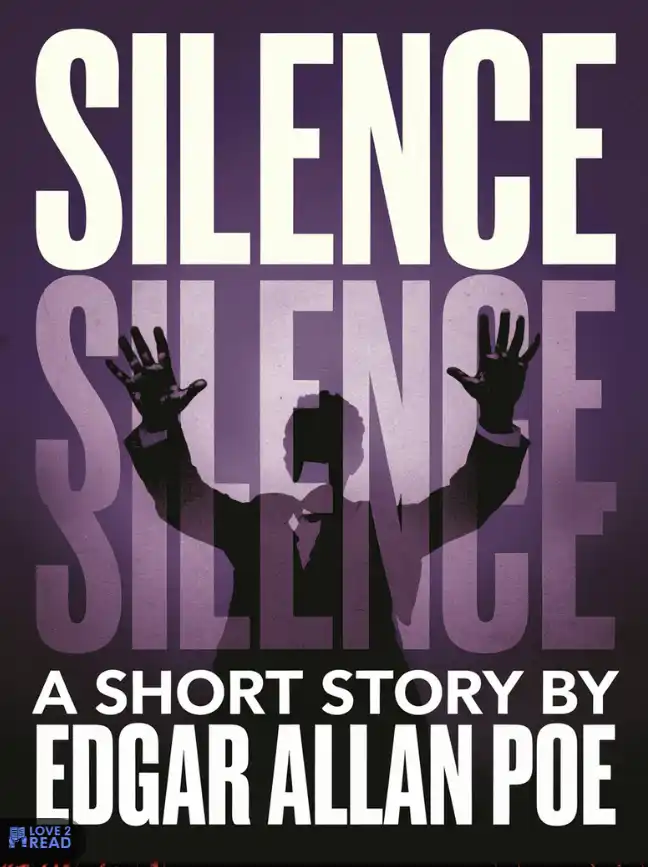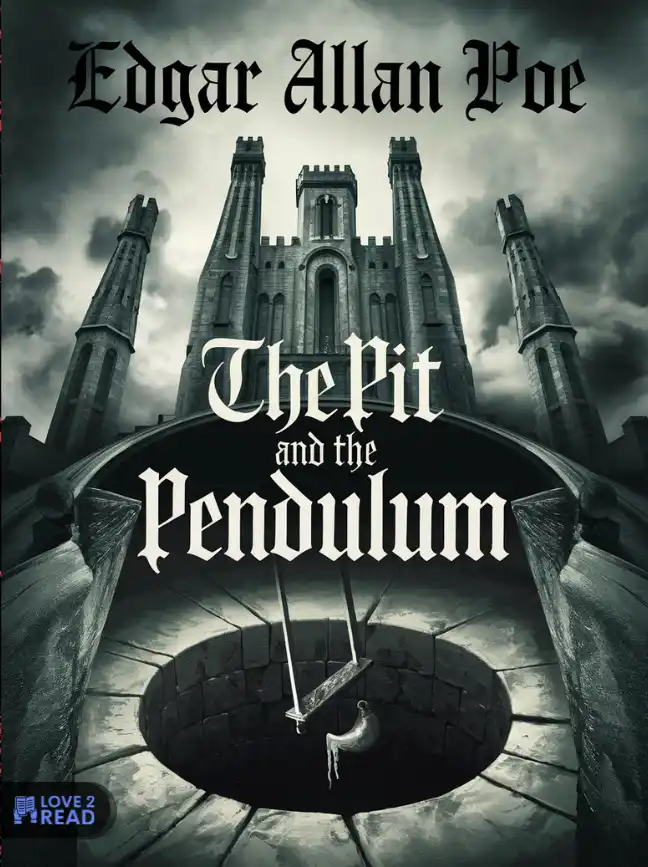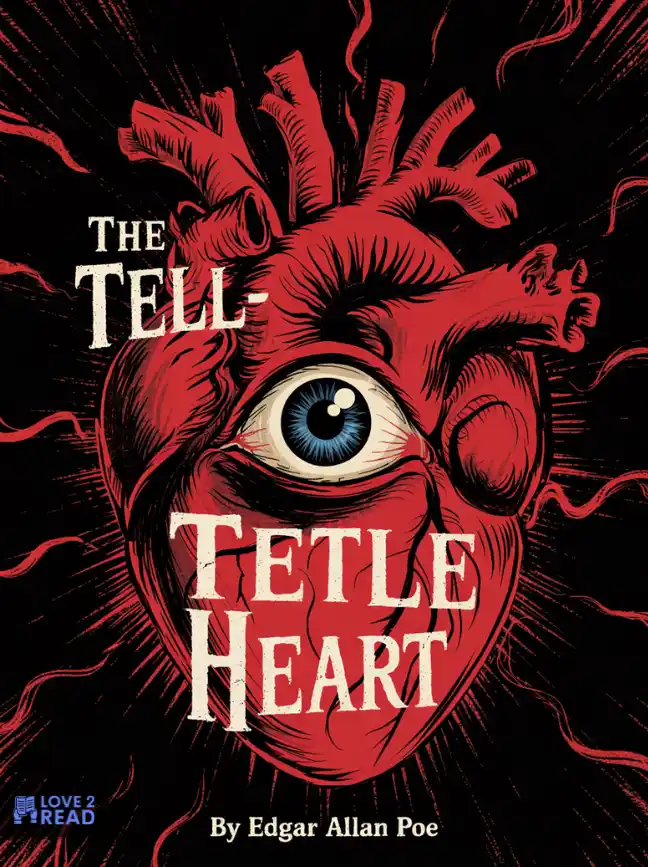(A room in the castle.)
HAMLET enters with some actors .
HAMLET.—Say this speech, I pray you, as I have spoken it before you, letting it run lightly upon the tongue; but if you declaim it with your full mouth, as many of our actors do, I had as well be pleased that my verses were spoken by the crier of the town. Nor go sawing the air too much with your hand, in that way; but use all soberly; for in the very torrent and tempest and, as it were, whirlwind of your passion, you must take hold and keep a temperance that may give it a flowing sweetness. Oh! it shocks me to the soul to hear a stout fellow, enlarged with a wig, tear a passion to shreds, to rags, to slit the ears of the audience, which, for the most part, is only equal to a mute pantomime, or much noise. I wish such a fellow would be whipped, for charging the Termagants like this;14 This is to make oneself more Herod than Herod himself. I beg you, avoid this.
Note 14: (back) Termagant was, it is said, in the old romantic poems, the name given to the god of storms among the Saracens. From there his name came, in the old mysteries, to share with the name of Herod the privilege of designating a tyrant full of violence and ostentatious pride, an almost obligatory character of this primitive theater, a sort of tragic Matamore and always taken seriously.
FIRST ACTOR.—I assure Your Highness….
HAMLET.—Neither be too tame, but let your own discretion be your guide; regulate the action to the words, and the words to the action, with particular care never to overstep the propriety of nature; for anything thus overstepped departs from the very datum of the stage, whose purpose, from the first day as now, has been and is to present, as it were, a mirror to nature; to show virtue her own features, to infamy her own image, to every age and incarnation of time its form and stamp.15 All this, then, whether you exaggerate or fall short of it, although it may make the ignorant laugh, can only grieve the judicious man, whose censure, even if he alone, must, in your opinion, carry more weight than a full house of other spectators. Oh! there are actors whom I have seen play,—and I have heard them praised by others, and praised greatly, not to say grossly, who, having neither the voice of Christians, nor the gait of Christians, nor of pagans, nor of men, squared themselves and bellowed to the point of making me think that some of nature’s workers had made men and had not made them well, so abominably did these people imitate humanity!
Note 15: (back) We have adopted here a slight correction from Mr. Mason: every age and body of the time , instead of the very age , which gave no admissible meaning. Even with this correction, the meaning is vague. The English language is not as rigorous as the French language, and often the hasty pen of Shakespeare sketches with a floating breadth this or that idea which we would like to be more clearly defined. The time , is it only the very time of the actors and their contemporaries, or is it the past as well as the present, and the whole of human duration? Every age , is it youth, middle age and old age, or the time of King Henry VI, that of Macbeth, that of Julius Caesar, that of Aeneas and the epic heroes? Are they the various generations of the same century, or the various centuries of history? Every body , is it every prominent character, or every personified character, or every class, every group in society? All this can and must, in our opinion, be implied both in the few abstract and uncertain words of Shakespeare, as, above, when he called the theatre “the essence and the abridged chronicle of the time.” In short, every age and body of the time , in that other bad language which is of the nineteenth century, it would probably be said: every phase and every type of life.
FIRST COMEDIAN.—I hope we have reformed that tolerably at home.
HAMLET.—Ah! reform it altogether. And let them that play your clowns say no more than is written in their parts; for there are some that begin to laugh themselves, to set a number of foolish spectators laughing. Yet at that very moment, perhaps, there is some essential situation in the play that demands attention. This is detestable, and shows the most pitiable pretension in the fool that uses this means. Come, prepare yourselves. ( Exit the actors .)—( Enter Polonius, Rosencrantz, and Guildenstern .) Where are we, my lord? Will the king hear this masterpiece?
POLONIUS.—Yes, and the queen too, and that at once.
HAMLET.—Tell the actors to make haste. ( Exit Polonius . ) Will you both go and hasten them too?
BOTH.—Yes, my lord.
(Horatio enters.) (Rosencrantz and Guildenstern exit.)
HAMLET.—What is it? Ah! Horatio!
HORATIO.—Here I am, my gentle lord, at your service.
HAMLET.—Horatio, you are in every way the fairest man that ever my experience of the world brought me to know.
HORATIO.—Oh, my dear lord!
HAMLET.—No, think not that I flatter; for what advantage can I hope from thee, that hast no revenue but thy good courage, to feed and clothe thee? Why should the poor be flattered? No! Let the smooth tongue lick the stupid pump! Let the soft hinges of the knee bend where profit rewards servility!… Do you hear me well? Since my tender soul was mistress of her choice, and could distinguish among men, she hath to herself set thee with the seal of her election; for thou hast been, in suffering all, as one that suffereth nothing, a man that, from fortune’s rebuffs to her favors, took all with equal thanks; and blessed are they whose blood and judgment have been so well combined, that they are not pipes made for fortune’s fingers, and ready to sing at whichever hole she pleases! Give me the man who is not the slave of passion, and I will carry him in the depths of my heart, yes, in the heart of my heart, as I do you…. But that’s a bit too much on that subject. A play is being performed tonight before the king, one of the scenes comes very close to the circumstances I told you about my father’s death. I beg you, when you see this act in progress, immediately, with the most intimate penetration of your soul, observe my uncle. If his hidden crime does not flush itself out, in a certain tirade, it is an infernal spirit that we have seen, and my imaginations are as black as Vulcan’s anvil. Watch him closely. As for me, I will rivet my eyes on his face, and then, we will join our two judgments to pronounce on what he has let see.
HORATIO.—Well, my lord. If he steals nothing from us while the play is on, and escapes search, I’ll take the theft for myself.
HAMLET.—They come for the play; I must loiter; find a seat.
(Danish March; fanfare. The King, Queen, Polonius, Ophelia, Rosencrantz, Guildenstern, and others enter.)
THE KING.—How is our cousin Hamlet?
HAMLET.—Wonderful, by my faith! Living on the chameleon’s remains, I eat air, and fatten myself with promises. You could not put your capons on such a diet.
KING.—I have nothing to do with that answer, Hamlet; I have nothing to do with those words.
HAMLET.—Nor I now.16 ( To Polonius . ) My lord, you once played comedy at the University, you say?
Note 16: (back) A man’s words, says the English proverb, are no longer his own once he has spoken them.
POLONIUS.—Yes, my lord, I did play it, and was thought a good actor.
HAMLET.—And what did you play?
POLONIUS.—I played Julius Caesar. I was killed in the Capitol, Brutus killed me.
HAMLET.—He played a brute part, in killing a calf of such momentous importance in such a place.17 Are the actors ready?
Note 17: (return) Double play on words between Brutus and brute , Capitol and capital .
ROSENCRANTZ.—Yes, my lord, they only await your permission.
THE QUEEN.—Come here, my dear Hamlet, sit by me.
HAMLET.—No, my good mother, here is a magnet that has more power of attraction.
POLONIUS, to the king. —Oh! oh! do you notice this?
HAMLET, sitting at Ophelia’s feet. —Madam, shall I lie between your knees?
OPHELIA.—No, my lord.
HAMLET.—I mean the head on your knees.
OPHELIA.—Yes, my lord.
HAMLET.—Do you think then that I had a peasant’s purpose in my mind?
OPHELIA.—I think nothing, my lord.
HAMLET.—It is not a bad thought to lie among the legs of young girls.
OPHELIA.—How, my lord?
HAMLET.—Nothing.
OPHELIA.—You are cheerful, my lord.
HAMLET.—Who, me?
OPHELIA.—Yes, my lord.
HAMLET.—Oh! I am but your jester. What can man do better than be merry? For, see how merry my mother looks—and my father is not two hours dead.
OPHELIA.—Why, no, my lord, two months ago.
HAMLET.—So long? why, let the devil wear black! For my part, I will have a set of sables.18 Oh, heavens! dead for two months and not yet forgotten? Then there is hope that the memory of a great man will outlive his life for half a year; but, by Our Lady, then he must build churches; otherwise, he will have to suffer the evil of non-rememberment, with the poor wooden hobbyhorse, whose epitaph is known:
“Because oh! because oh! the wooden hobbyhorse, “The wooden hobbyhorse is forgotten!19 »
(The trumpets sound; a pantomime follows: a king and a queen enter with a very loving air. The queen embraces him, and he embraces the queen. She kneels before him and, with gestures, protests her love. He lifts her up and leans her head on his shoulder. He lies down on a bench covered with flowers. Seeing him asleep, she withdraws. Then another character appears, takes off his crown, kisses it, then pours poison into the king’s ear and leaves. The queen returns, finds the king dead, and makes gestures of despair. The poisoner arrives with two or three mute actors and seems to be lamenting with her. The body is carried away. The poisoner offers the queen wedding presents; for a moment she seems to reject them and refuse them; but in the end, she accepts the pledge of her love. The actors leave.)
Note 18: (back) The text says: ” Let the devil wear black, for I’ll have a suit of sables ;” there is one of those puns that must be explained when they cannot be translated. In English, sable means the fur of the sable marten, the most luxurious finery in Shakespeare’s time, and at the same time, in the language of the coat of arms, the color black, as has already been noted twice in this very play, in connection with the dead king’s beard (Act I, Sc. II) and in connection with Pyrrhus’s armor (Act II, Sc. II). By using this word, Shakespeare wanted us to hesitate between the two meanings. At the same time as we hear Hamlet say to Ophelia: “To hell with mourning! to me elegance!” we hear him say to himself, by a subtle pun, by an unforeseen contradiction, by a mental restriction as quick as lightning: “I speak of beautiful furs to Ophelia, but it is a black garment that I always want to have, and I piously guard this mourning that I seem to reject and mock.” Let us not forget that Hamlet lives double: he lives before people he wants to sound out and deceive, enemies or friends; and he lives in himself, observing himself constantly, and as if in the presence of the paternal spectre to which he wants to give satisfaction. From there, often double words like the life of Hamlet, and addressed in one sense to the real characters of the drama, in another sense to the invisible witness of the interior drama which takes place in the heart of Hamlet. And we, admitted to follow these two dramas, confidants of his secret as spectators of his actions, let us try not to lose anything, let us practice listening to him with this same presence of mind so subtle and so sudden which sharpens his language, if we want to admire enough the unique art of Shakespeare in the creation of Hamlet, so much in succession through such a labyrinth, the harmony of all these contrasts, the depth of more than one childishness.
Note 19: (return) Among the games of the month of May, popular in the villages of England, there was a hobby-horse , the occasion of various farces and a dance which had received the same name. But the Puritan mood having cursed and proscribed all these amusements, a complaint was made on the poor, damaged hobbyhorse, and Hamlet recalls it, contrasting the oblivion into which this innocent victim of the sectarians had fallen, with the eternal memory which a church founder ensured, whose name had a place in the public prayers on the patron’s day.
OPHELIA.—What means this, my lord?
HAMLET.—Faith! it is the snare of wickedness; it means crime.
OPHELIA.—Doubtless this pantomime indicates the subject of the play.
(The Prologue enters.)
HAMLET.—We shall know of that fellow. Actors cannot keep a secret, they will tell us all.
OPHELIA.—Will he tell us what this pantomime meant?
HAMLET.—Yes, and any other pantomime you will mime to him. Don’t be ashamed to do the show, and he won’t be ashamed to tell you the story.
OPHELIA.—You are a scoundrel, you are a scoundrel. I will hear the play.
THE PROLOGUE.—For ourselves and for our tragedy, kneeling here before your clemency, we implore your audience and patience.20
Note 20: (back) The first idea of this scene is not Shakespeare’s. Before him, the poet Kid, in his play entitled The Spanish Tragedy , had mixed and made another theatrical representation contribute to the main action; here is how: Hieronymus, an old Spanish marshal, has a son who is murdered, but whose murderers he does not know: he laments and searches, he thinks he has discovered and still hesitates; finally his son’s mistress reveals the culprits to him, and to ensure a resounding revenge, he plots with the young woman to give the King of Spain the entertainment of a tragedy in which the murderers will have roles and will find death. The plan is executed: Hieronymus and Belimperia kill their enemies, Belimperia kills herself, the whole court applauds the terribly natural performance of the actors, and then Hieronymus comes forward, shows the corpse of his son, and the outcome of the tragedy thus becomes that of the drama. This alone would be enough to prove that Shakspeare imitated Kid, while reworking his idea; but there are other resemblances between the two plays: “I find in the character of Hieronymus the germ of that of Hamlet,” wrote recently Mr. Alfred Mézières, in his learned and elegant studies on the contemporaries of Shakspeare; “like Hamlet, the old Spanish marshal pursues the revenge of a murder of which he does not know with certainty the authors; like him, he doubts, he hesitates; like him, he simulates madness to educate himself and to hide his plans, at the same time that he sometimes experiences their transports through the excess of his despair. Their madness is a ruse, but at times it becomes real. There is skill in their conduct and delusion in their thinking. One uses the small play, performed within the large one, to bring about the denouement, the other to convince the murderers of their crime. But basically the process is the same; if Shakespeare made greater use of it, Kid was the first to use it.” ( Magazine de librairie , February 10, 1859.)
HAMLET.—Is this a prologue, or the motto of a ring?
OPHELIA.—It is brief, my lord.
HAMLET.—Like a woman’s love.
(A king and queen enter.)
THE KING OF COMEDY.—Thirty times Phoebus’s chariot has circled the salt basin of Neptune and the rounded ground of Tellus, and thirty times twelve moons, with their borrowed splendor, have marked around the world twelve times thirty stages of time, since love united our hearts, and hymen our hands, by the reciprocity of the most sacred ties.
THE QUEEN OF COMEDY.—Ah! may the sun and moon still make us count their journeys in as many numbers, having done with love! But, wretched man that I am! you are so ill these days, so far from joy and your former manner, that I am distrustful of you. Yet, though I distrust myself, it must not, my lord, discourage you: for the fears and tendernesses of women go in equal quantities, alike nil, or alike extreme. Now, what my love is, experience has made you know, and the measure of my love is that of my fear too. Where love is great, the smallest suspicions are a fear; where small fears become great, there grow great loves.
THE KING OF COMEDY.—Yes, truly, my love, I must bid you farewell, and soon no doubt; my active forces renounce their duties; and you, you will remain behind, to live in this world so beautiful, honored, cherished; and perhaps another as tender will be, by you, as husband…..
THE QUEEN OF COMEDY.—Ah! suppress the rest! Such love, in my bosom, could only be treason. A second husband, ah! let me be cursed in him! No one married the second without having killed the first.
HAMLET ( aside ).—Here is the wormwood! Here is the wormwood!
THE QUEEN OF COMEDY.—The motives that lead to a second marriage are base motives of gain, not motives of love. I kill my dead husband a second time, when a second husband embraces me in my bed.
THE KING OF COMEDY.—I believe you, you mean what you say now. But what we decide, we often break. A design is nothing more than a slave to our memory and, violently born, is poor in validity. Today, like an unripe fruit, it clings to the tree; but it falls even without a jolt, when ripe. Of necessity, we forget to pay ourselves the debt for which we alone are our own creditors. What, in passion, we propose to ourselves, becomes irrelevant when the passion is over. The violence of pains or joys, by destroying them themselves, also destroys the ordinances they had signified. Where joy most frolics, where pain most laments, pain is enlivened and joy saddened by the slightest accident. This world is not forever, and it is not strange that our very loves change with our fortunes. For this question still remains for us to decide: Is it love that leads fortune, or fortune love? Let the great man be low, you see, his favorite flies away. Let the poor man rise, he makes his enemies as many friends, and until this day love has directed itself according to fortune; for he who has no need never lacks a friend, and he who, out of necessity, puts one of these hollow friendships to the test, immediately turns it into enmity. But to return to the rule where I began, our wills and our destinies thwart each other so much in their course, that our plans are always overturned. Ours are our thoughts, but their outcome is not ours. Think then that you never want to unite yourself with a second husband: your thoughts may die, when your first lord is dead.
THE QUEEN OF COMEDY.—Then let the earth no longer give me food, nor heaven light! Let play and rest be closed to me day and night! May my faith and hope be changed into despair! May my career be limited to the depths of a prison and to the pleasures of an anchorite! May all the reverses that dismay the face of joy meet my best wishes and destroy them! And may I, in this world and the next, be pursued by the most lasting torment, if, once a widow, I ever become a woman again!
HAMLET, to Ophelia. —Now, if she should break her oath….
THE KING OF COMEDY.—These are deep oaths. Sweet friend, leave me here alone for a little while. My spirits are growing heavy, and I would with sleep deceive the lingering tedium of the day.
(He falls asleep.)
THE QUEEN OF COMEDY.—Let sleep lull your brain, and never let misfortune come between us two.
(She leaves.)
HAMLET.—Madam, how do you like this play?
THE QUEEN.—The queen protests too much, it seems to me.
HAMLET.—Oh! but she will keep her word.
THE KING.—Do you know the subject of the play? Is there nothing in it that can offend?
HAMLET.—No, no; they only laugh; they poison for laughter; there is nothing in the world hurtful.
THE KING.—What do you call the play?
HAMLET.— The Mousetrap . And why, you say? By metaphor. This play is a representation of a murder committed in Vienna. The duke’s name is Gonzaga, and his wife Baptista. You shall see presently. It is a masterpiece of villainy; but what does it matter? Your Majesty, and we, who have a clear conscience, it does not affect us in the least. Let the flayed nag kick, if the shoe hurts her: our withers are not broken. ( Lucianus enters. ) That is one Lucianus, the king’s nephew.
OPHELIA.—You are as good a help as the Chorus, my lord.
HAMLET.—I could tell the dialogue between you and your lover, if I saw the puppets play.
OPHELIA.—You are sharp, my lord, you are sharp.
HAMLET.—It would cost you but a sigh, and the point would be blunt.
OPHELIA.—Better and better, but worse and worse.
HAMLET.—Yes, how you mistake when you take your husbands! Begin, then, murderer! Cease your cursed grimaces, and begin. Come! The croaking raven howls for vengeance!
LUCIANUS.—Black thought, ready arm, suitable drug, favorable moment, complicit opportunity! No other creature that sees! O thou violent mixture of wild herbs gathered at midnight, thrice withered, thrice infected by Hecate’s imprecation, let thy magic nature and cruel power invade without delay the still healthy life!
(He pours poison into the sleeping king’s ear.)
HAMLET.—He poisons her in the garden to seize her possessions.—His name is Gonzaga. The story exists, written in Italian, a first-rate style. You shall see presently how the murderer acquires the love of Gonzaga’s wife.
OPHELIA.—The king rises!
HAMLET.—What! frightened by a will-o’-the-wisp?
THE QUEEN.—What is the matter, my lord?
POLONIUS.—Leave the coin there!
THE KING.—Give me a light! Let us go out.
POLONIUS.—Lights! Lights! Lights!
(Everyone leaves except Hamlet and Horatio.)
HAMLET.—“Well! let the stricken deer run away and weep; let the unwounded hart play! Some must watch, some must sleep. Such is the world.” Do you not think, sir, that a coup de théâtre like this, with the accompaniment of a forest of feathers on the head, and two roses of Provins on slashed shoes,21 could, if fortune, later, treat me as a Turk to More, make me receive companion in a pack of comedians?
HORATIO.—Half-share.
HAMLET.—In his own right, I tell you!22
“For you know, beloved Damon, that this dismantled kingdom belonging to Jupiter himself, and now reigns in these places a real… a real… a real peacock.”
HORATIO.—You might have put in the rhyme.23
Note 21: (return) In Shakespeare’s time, on elegant shoes, slashed as clothes often were, to reveal the slits in the shiny fabric, large bows of ribbons arranged in the shape of roses were worn, and the town of Provins was from then on famous everywhere for its roses, which it had been trading in for six centuries, both for pharmacy and for gardens.
Note 22: (back) Actors in Shakespeare’s time did not have fixed annual salaries. The total profits of the troupe were divided into a certain number of parts; the entertainment manager took those he had reserved for himself, and each actor, according to his merit and the agreement made, received either several, or one, or some part of one. Horatio only gives Hamlet a half share because he only has the right of collaborator in the play he has had performed; but Hamlet, valuing more the value of his cunning and the dramatic effect of his success, demands a full share.
Note 23: (back) Hamlet says: A very peacock ; the rhyme was: A very ass ; and Horatio says to Hamlet that the unworthy king of Denmark deserves the title of ass as well as that of peacock.
HAMLET.—Oh, my dear Horatio! now I would have a thousand pounds on the ghost’s word. Have you observed?
HORATIO.—Very well, my lord.
HAMLET.—When the poisoning was spoken of….
HORATIO.—I have very well observed it!
HAMLET.—Ah! ah!—Come, a little music! The flageolets!
“For if the king doesn’t like comedy, well! then probably…it’s because he doesn’t like it, by Jove!”
(Rosencrantz and Guildenstern enter.)
Come on! A little music.
GUILDENSTERN.—My good lord, grant me the grace to have a word with you.
HAMLET.—Quite a story, sir.
GUILDENSTERN.—The king, sir….
HAMLET.—Ah! yes, sir. What news of him?
GUILDENSTERN.—He is in his apartment, singularly unwell.
HAMLET.—By drink, sir?
GUILDENSTERN.—No, my lord, by anger.
HAMLET.—Your wisdom had been better shown in substance, in instructing the physician of this; for, as for me, to undertake to bring him purgatives, would perhaps plunge him deeper into the cholera.
GUILDENSTERN.—My good lord, put some order in your speeches, and do not make these wild leaps from my subject.
HAMLET.—I am tame, sir; speak.
GUILDENSTERN.—The queen your mother, in very great affliction of mind, sent me to you.
HAMLET.—You are welcome.
GUILDENSTERN.—No, my lord, this courtesy is not of the true race. If you please give me a sound answer, I will execute your mother’s orders; if not, your pardon and my return will put an end to my office.
HAMLET.—Sir, I cannot….
GUILDENSTERN.—What, my lord?
HAMLET.—…. Give you a sound answer; my mind is sick. But, sir, my answer, such as I can give it, is well at your service, or rather, as you say, at my mother’s. So, without further words, let us come to the point: my mother, you say….?
ROSENCRANTZ.—This is what she says: your conduct has struck her with surprise and astonishment.
HAMLET.—O prodigious son, who can thus astonish his mother! But hath not this mother’s astonishment some train that runs at her heels? Instruct me.
ROSENCRANTZ.—She wishes to talk with you in her study, before you go to bed.
HAMLET.—We will obey, were she ten times our mother. Have you any other business to do with us?
ROSENCRANTZ.—My lord, there was a time when you loved me.
HAMLET.—And I love you still, by this plunderer and this thief!24
Note 24: (back) That is to say: “By my hands,” and no doubt Hamlet offers them to Rosencrantz. The singular periphrasis which he uses comes from the English catechism, which teaches the catechumen, among his duties towards his neighbor, to abstain his hands from pillaging and stealing ( picking and stealing ).
ROSENCRANTZ.—My good lord, what is the cause of your trouble? Surely it is shutting the door of your own deliverance to deny your griefs to your friend.
HAMLET.—Sir, what I want is advancement.
ROSENCRANTZ.—How can that be, when you have the king’s own voice as a pledge of your succession to the crown of Denmark?25
HAMLET.—Yes; but while the grass grows…;26 » The proverb itself has grown a little musty. ( Enter actors and flageolet players .) Ah! flageolet players! Let’s see one. ( To Guildenstern .) Go with you! Why are you circling around me, and sniffing my trail as if you wanted to drive me into a trap?
Note 25: (back) In Denmark, as in most Gothic kingdoms, the kingship was elective; but it was the custom, when the king died, to choose his successor from his own advice and from his family. Many details in Hamlet attest to this complex nature of the Danish monarchy. If it had not been to some extent elective, Hamlet’s uncle would not have been able to keep his frustrated nephew at court; Laertes would not speak to Ophelia of this “great voice from Denmark” which must govern Hamlet’s life (Act I, Scene III); Hamlet would formally call his uncle a usurper, instead of calling him: “he who has crept between the election and my hopes” (Act V, Scene II); he would not predict, as he died, that “the choice will fall on young Fortinbras” (Act V, Scene n). On the other hand, if the Danish monarchy had not been to some extent hereditary, the king would not say to Hamlet: “You are the nearest to our ‘throne'” (Act I, Scene II); the young student from Wittenberg would have had no chances to lose or titles to claim; and when the seditious want to carry Laertes to the throne (Act IV, Scene V), the messenger would not say that “antiquity is forgotten and custom misunderstood;” finally, if, in Denmark, the declaration of the last king had not influenced, by force of habit and almost of law, the election of the new king, there would not be a question, here, of the promises made to Hamlet by his uncle, and Hamlet, when he dies (Act V, Scene II), would not think of giving his vote to Fortinbras, for whom it has value only as an act of that authority of a moment with which Hamlet has been half invested by the promises and the death of Claudius. Shakspeare never lost sight of the triple source of royal power among the Danes: popular election, half-heredity, suffrage of the deceased king. Shakspeare is full of ignorance, historical distractions, anachronisms; but when he knows a fact well, and once he has made it enter into his drama, this fact becomes like a character in the drama and moves effortlessly and is found everywhere. The example we have just given seemed conclusive enough to be given throughout.
Note 26: (return) This proverb that Hamlet does not finish was: “While the grass grows, the hungry horse grows thin.” Hiding, under an ambitious impatience, his impatience to take revenge, Hamlet will confess that his uncle, to his liking, lives too long; while dissembling, he will betray himself; he half escapes; but he stops, he turns short, and Rosencrantz is outwitted.
GUILDENSTERN.—Ah! my lord, if my duty to the king makes me too bold, it is also my love to you that makes me importunate.
HAMLET.—I don’t hear that well. Will you play that flute?
GUILDENSTERN.—My lord, I cannot.
HAMLET.—I pray you.
GUILDENSTERN.—Believe me; I cannot.
HAMLET.—I beseech you.
GUILDENSTERN.—I don’t know a single touch of it, my lord.
HAMLET.—That’s as easy as lying. Govern these vents with your fingers and thumb, and breathe the instrument with your mouth, and it will begin to discourse in very eloquent music. See you? Here are the valves.
GUILDENSTERN.—But I cannot make them obey the expression of any harmony. I have not the requisite talent.
HAMLET.—Well, now see what a disgraceful thing you make of me! You would play me; you would seem to know my valves; you would force my soul from my secret; you would make me sound, from my lowest note to my highest. There’s much music, there’s a good voice in this little organ pipe; and yet you cannot make it speak. By the blue-blood! do you think it’s easier to play me than a flute? Take me for what instrument you will; you may torment my keys, you cannot play me. ( Enter Polonius .) Bless you, sir!
POLONIUS.—My lord, the queen would speak to you, and this very hour.
HAMLET.—See ye that cloud, which is almost in the shape of a camel?
POLONIUS.—By the holy mass, he is like a camel, indeed!
HAMLET.—I think he looks like a weasel.
POLONIUS.—He has a back like a weasel.
HAMLET.—Or whale?
POLONIUS,—Yes, quite whale.
HAMLET.—Then I will go to my mother presently. The bow is at the end of its string; they pull me mad. I will go presently.
POLONIUS—I will tell him.
(Polonius leaves.)
HAMLET.—All is easy to say. Leave me, my friends. ( Exit Rosencrantz, Guildenstern, Horatio, etc. ) This is just the hour of the night, that bewitching hour, the hour when churchyards yawn, and hell itself breathes contagion on this world. Now could I drink hot blood, and do such bitter deeds that the day would shudder to look upon them…. Softly! to my mother’s, now? O my heart! lose not thy nature; let never the soul of Nero enter this firm breast; let us be cruel, but not unnatural: I will talk to her of daggers, but I will not use them. My tongue and my soul, be hypocrites in this, and however my speeches may strike it,—as to seal them with seals that act, O my soul! never consent!
(He leaves.)

